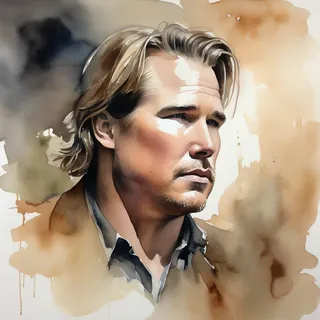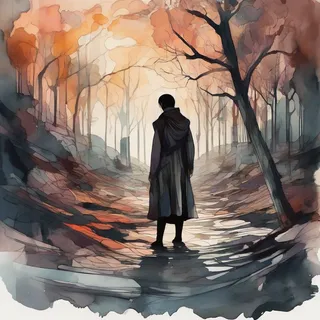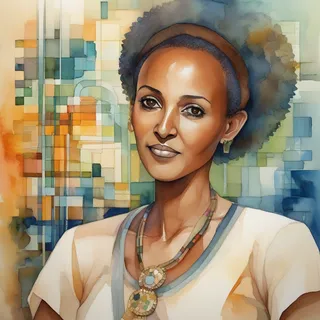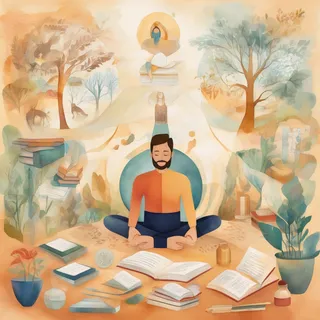They told me that my son was a gift to science. They told me that I should abort. They told me to donate his remains to the hospital for research so that some good could come from his condition.
When the unthinkable happens
When my son was diagnosed with CDH (Congenital Diaphragmatic Hernia), my world shattered into pieces I wasn't sure I could ever reassemble. The doctor told me to give up. They told me that I should abort. They told me to donate his remains to the hospital for research so that some good could come from his condition.
I sat in that sterile examination room, the fluorescent lights buzzing overhead, as the doctor spoke about my unborn child as if he were already gone—a statistic, a research opportunity, but not a life worth fighting for. Their words echoed in my head for days: "incompatible with life," "severe case," "minimal chance of survival." The weight of those words nearly crushed me.
But somewhere deep inside, I knew I couldn't accept that verdict without seeking another opinion. My son deserved more than to be written off before he'd even had a chance to take his first breath.
The search for hope
The days after that initial diagnosis became a blur of frantic research, tearful phone calls, and sleepless nights. I learned more medical terminology in those weeks than I had in my entire life. CDH, I discovered, is a condition where there's a hole in the diaphragm that allows abdominal organs to migrate into the chest cavity, restricting lung development. Survival rates varied wildly depending on the severity and—crucially—the experience of the medical team handling the case.
What became clear was that not all medical centers are created equal when it comes to rare conditions like CDH. Some see a case like my son's once every few years. Others specialize in it, treating dozens annually. The difference in survival rates and outcomes between these centers is staggering—a fact that the first doctor never bothered to mention.
Every conversation with other CDH parents hammered home the same truth: finding the right medical team wasn't just important; it was everything.
Making the impossible choice
Finding the right doctors made all the difference. I chose to move across the country for a healthcare team with experience; to find a team that cared. And that has made all the difference.
It wasn't an easy decision. Uprooting my life, temporarily leaving behind support systems, facing enormous medical bills—these were daunting obstacles. But when weighed against my son's life, they seemed insignificant.
Johns Hopkins All Children's Hospital had one of the nation's leading CDH programs with survival rates far above the national average. More importantly, when I spoke with them, they didn't talk about my son as a hopeless case. They spoke about him as a patient they could help, a life they could save. They didn't promise miracles, but they offered something the first hospital hadn't: a fighting chance.
The contrast was stark. The first team saw only impossibilities. The team at Johns Hopkins saw difficult challenges that could be overcome with experience, dedication, and cutting-edge care.
The journey and the victory
The months leading up to his birth were a roller coaster of emotions. There were additional tests, consultations, preparations for immediate surgery after birth, and countless moments of fear. But there was also something new: hope.
The day he was born, a team of specialists was waiting. Every contingency had been planned for. Every possible complication had been anticipated. This wasn't their first CDH baby—it was their hundredth. And that experience showed in every careful decision, every confident movement.
My son is one week old today and has already completed his repair surgery. If it wasn't for four tiny scars, nobody would know that he wasn't born strong, and otherwise perfect. The same child that one doctor deemed incompatible with life is now breathing on his own, taking feedings, and gripping my finger with surprising strength.
The difference care makes
I often think about what might have happened if I'd accepted that first doctor's assessment. If I hadn't advocated for my son. If I hadn't sought out specialists who had the expertise this rare condition requires.
Medical expertise matters—tremendously. But equally important is finding doctors who see patients as whole human beings deserving of every chance, not just as cases to be managed. Doctors who partner with parents rather than dictating to them. Doctors who understand that statistical probabilities aren't destinies.
The good physician treats the disease; the great physician treats the patient who has the disease.
- William Osler
I will be forever grateful to the team at Johns Hopkins for everything that they do, and for the love and support of the fantastic charities that have helped us on our journey.
A community of support
This journey has taught me that medicine is only part of the healing equation. Community is equally crucial—people who understand what you're going through and organizations dedicated to supporting families facing medical crises.
-
To the Ronald McDonald House - Thank you for the housing, feeding, and emotional care you provided to us and the other families. When home was thousands of miles away, you gave us a place that felt like one.
-
To Tiny Hero and CDH International - for the excellent resources and support. Your guidance helped us navigate this complex condition and connected us with others walking the same path.
-
To Barkley - for the ability to maintain normalcy during a time of chaos. For understanding that sometimes life demands flexibility, and for making it possible for me to be both a father and a professional during this challenging time.
Looking forward
My son's journey is just beginning. There will be follow-up appointments, developmental milestones to monitor, and challenges unique to CDH survivors. But we face them with confidence, knowing we have the right medical team in our corner.
To any parent facing a devastating diagnosis: seek second opinions. Research centers of excellence. Connect with patient advocacy groups. Find doctors who see your child as more than their condition.
Good doctors don't just matter—they can be the difference between despair and hope, between giving up and fighting on, between loss and life. My son is living proof.





